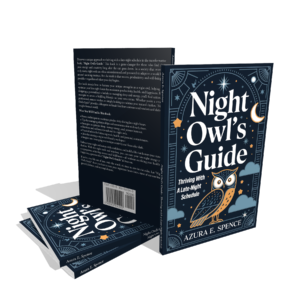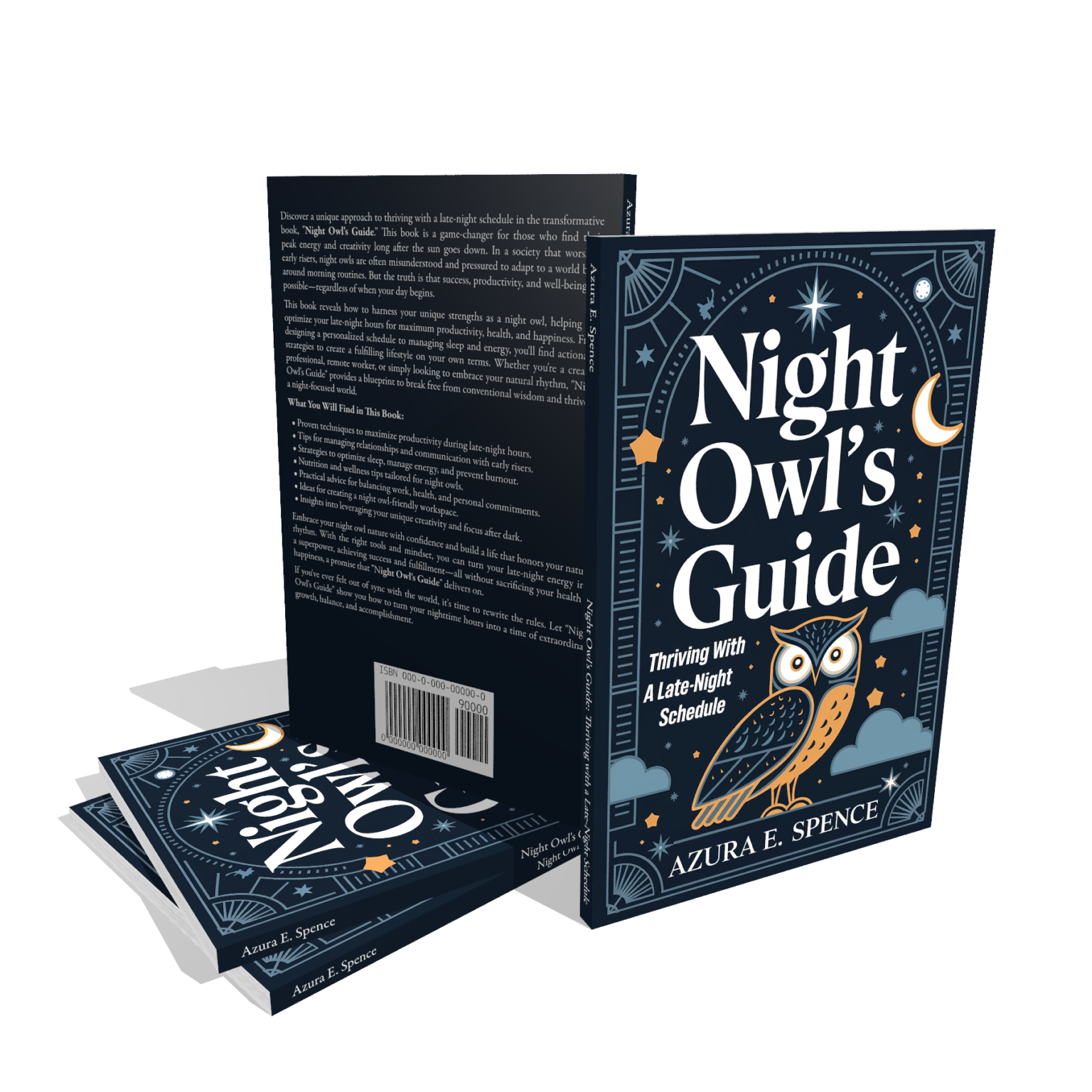Night Owl’s Guide to Thriving with a Late Night Schedule – Complete Guide to Optimizing Your Nocturnal Lifestyle

Struggling to thrive as a night owl in a world designed for early birds? You’re not alone. Millions of natural night owls face daily challenges trying to force themselves into morning routines that drain their energy and productivity. This comprehensive guide finally provides a roadmap for embracing your natural late night schedule while achieving success in every area of life.
Unlike generic productivity books that ignore your chronotype, this night owl’s guide offers practical strategies specifically designed for people who naturally peak during evening hours. You’ll discover how to optimize your energy, build sustainable routines, and create a lifestyle that works with your biology instead of against it.
What You’ll Discover
- Energy Optimization Strategies: Learn to maximize your natural evening productivity peaks and manage daytime energy dips effectively
- Sleep Schedule Mastery: Discover proven techniques for maintaining healthy sleep patterns while honoring your late night chronotype
- Career Success as a Night Person: Transform your professional life with strategies for excelling in traditional work environments
- Social Life Balance: Master the art of maintaining relationships and social connections without sacrificing your natural rhythm
- Health and Wellness: Overcome common health challenges faced by night owls through targeted nutrition and exercise timing
- Time Management Systems: Build effective daily routines that align with your peak performance hours for maximum productivity
Why This Book Matters
Society often treats being a night owl as a personal failing, but science shows that chronotypes are largely biological. This guide validates your natural rhythm while providing actionable solutions for common challenges. You’ll learn evidence-based strategies that work specifically for evening-oriented people, not generic advice that ignores your unique needs.
The transformation begins immediately as you implement simple adjustments that honor your natural energy patterns. Stop fighting your biology and start leveraging it for unprecedented success in work, relationships, and personal goals.
Key Features
This comprehensive ebook spans multiple chapters covering everything from sleep optimization to career advancement strategies. Available as an instant digital download, you’ll receive immediate access to practical worksheets, daily routine templates, and energy tracking tools. The format allows for easy reading on any device, with printable exercises for hands-on practice. Also available as audiobook on Google Play Books and Spotify for convenient listening during commutes or workouts.
Frequently Asked Questions
Will this night owl guide work if I have a traditional 9-to-5 job?
Absolutely. The book includes specific strategies for thriving in conventional work environments while maintaining your natural late night schedule. You’ll learn energy management techniques and productivity hacks designed specifically for night owls navigating daytime responsibilities.
How quickly can I see results from implementing these late night productivity strategies?
Most readers notice improvements within the first week of implementation. The strategies focus on working with your existing rhythm rather than forcing dramatic changes, allowing for immediate benefits while building sustainable long-term habits.
Is this suitable for people who want to become more of a night person?
While the guide is primarily designed for natural night owls, it includes valuable insights for anyone wanting to optimize their evening hours and late night productivity. The strategies can benefit anyone seeking to make their later hours more effective.
Get Your Copy Today
Transform your nocturnal lifestyle with this comprehensive night owl’s guide. Available for instant download at just $6.99, this ebook provides exceptional value compared to expensive courses or workshops. Also available as audiobook on Google Play Books and Spotify. Purchase your copy through all major ebook retailers including Apple Books, Barnes & Noble, and Kobo to begin thriving with your late night schedule today.
Watch the Video Review

